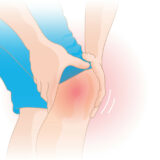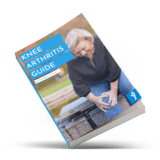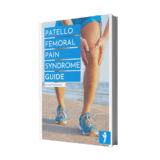9 Reasons to Exercise More – Some Might Actually Surprise You!

Doctors, physios and the media keep telling us to exercise to be healthier. While this is good advice, it can still be challenging to overcome our inner laziness. The great thing about exercise is that it is usually low cost, it is also low risk and you can do it wherever you want and whenever you want. In this blog article, we will present you 9 proven (health) benefits of exercises to help you find the motivation to move more.
 1. It’s healthy for your back
1. It’s healthy for your back
A study from Brigham Young University in Utah compared the health of intervertebral discs in the backs of sedentary and active people. They found that people who were active for more than 30 minutes a day had healthier intervertebral disks than sedentary people.
2. Exercise helps to prevent chronic disease
 We now know of 40 chronic diseases that are worsening with a lack of physical activity including breast cancer, bone fractures and Here’s the complete list of diseases that activity can help to prevent:
We now know of 40 chronic diseases that are worsening with a lack of physical activity including breast cancer, bone fractures and Here’s the complete list of diseases that activity can help to prevent:
- Accelerated biological aging/premature death | 2. Aerobic (cardiorespiratory) fitness (VO2max) | 3. Arterial dyslipidemia | 4. Balance problems | 5. Bone fracture/falls | 6.Breast cancer | 7. Cognitive dysfunction | 8. Colon cancer | 9.Congestive heart failure | 10.Constipation | 11. Coronary (ischemic) heart disease | 12.Deep vein thrombosis | 13. Depression and anxiety | 14.Diverticulitis | 15. Endometrial cancer | 16. Endothelial dysfunction | 17. Erectile dysfunction | 18. Gallbladder diseases | 19. Gestational diabetes | 20.Hemostasis | 21.Hypertension | 22. Immunity | 23. Insulin resistance | 24. Large arteries lose more compliance with aging | 25. Metabolic syndrome | 26. Nonalcoholic fatty liver disease | 27. Obesity | 28. Osteoarthritis | 29. Osteoporosis |30. Ovarian cancer | 31.Pain | 32. Peripheral artery disease | 33. Preeclampsia | 34. Polycystic ovary syndrome | 35. Prediabetes | 36. Rheumatoid arthritis | 37. Sarcopenia | 38. Stroke | 39. Tendons being less stiff | 40. Type 2 diabetes
3. Exercise reduces cardiovascular disease
 Cardiovascular disease is by far the leading cause of death worldwide. A study from Curtin University in Perth Australia found that exercise reduces the risk to die from cardiovascular disease by 33%. There was an actual dose-response relationship, so in case people performed rigorous exercise daily, they could even reduce their risk of more than 50%.
Cardiovascular disease is by far the leading cause of death worldwide. A study from Curtin University in Perth Australia found that exercise reduces the risk to die from cardiovascular disease by 33%. There was an actual dose-response relationship, so in case people performed rigorous exercise daily, they could even reduce their risk of more than 50%.

4. Exercise kills pain
 Over the years, many studies have demonstrated that exercise can relieving pain caused by different conditions, such as fibromyalgia, low back pain, neuropathy, and osteoarthritis. There are many ideas why this might be happening. The most accepted theory is that exercise releases different substances in our brain like opioids & serotonin which can modulate how we perceive pain.
Over the years, many studies have demonstrated that exercise can relieving pain caused by different conditions, such as fibromyalgia, low back pain, neuropathy, and osteoarthritis. There are many ideas why this might be happening. The most accepted theory is that exercise releases different substances in our brain like opioids & serotonin which can modulate how we perceive pain.
5. Exercise improves bone health
 Weight-bearing physical activity has beneficial effects on bone health across the age spectrum. Physical activities that generate relatively high-intensity loading forces, such as plyometrics, gymnastics, and high-intensity resistance training, augment bone mineral density in children and adolescents. Furthermore, high-intensity resistance training improves bone mineral density in postmenopausal women with osteopenia and osteoporosis.
Weight-bearing physical activity has beneficial effects on bone health across the age spectrum. Physical activities that generate relatively high-intensity loading forces, such as plyometrics, gymnastics, and high-intensity resistance training, augment bone mineral density in children and adolescents. Furthermore, high-intensity resistance training improves bone mineral density in postmenopausal women with osteopenia and osteoporosis.
6. Exercise is good for your mental health
 Specifically, during the aging process, physical exercise might represent a potential adjunctive treatment for neuropsychiatric disorders and cognitive impairment, helping delay the onset of degenerative processes in the brain. The overwhelming evidence present in the literature today suggests that exercise ensures successful brain functioning.
Specifically, during the aging process, physical exercise might represent a potential adjunctive treatment for neuropsychiatric disorders and cognitive impairment, helping delay the onset of degenerative processes in the brain. The overwhelming evidence present in the literature today suggests that exercise ensures successful brain functioning.
7. Exercise will let you live longer
 A study from Penn State University of Medicine followed more than 30.000 people at the age of 65 and older for 15 years. The people who engaged in strength training twice a week or more had 46% lower all-cause mortality in this 15 year period. This means that their likelihood to die in this period from any cause was reduced by 46%. So if you would like to live longer – and also age healthier – you have all the reasons to engage in regular strength training.
A study from Penn State University of Medicine followed more than 30.000 people at the age of 65 and older for 15 years. The people who engaged in strength training twice a week or more had 46% lower all-cause mortality in this 15 year period. This means that their likelihood to die in this period from any cause was reduced by 46%. So if you would like to live longer – and also age healthier – you have all the reasons to engage in regular strength training.
8. Exercise is often as effective as surgery
 Many common surgeries like the removal of a meniscus, shoulder surgery for the rotator cuff, and even total knee replacement surgery do not score better in terms of pain reduction and improvement in function when compared to exercise. So in many cases, you can avoid surgery when you choose to become more active.
Many common surgeries like the removal of a meniscus, shoulder surgery for the rotator cuff, and even total knee replacement surgery do not score better in terms of pain reduction and improvement in function when compared to exercise. So in many cases, you can avoid surgery when you choose to become more active.
9. Exercise makes you stronger
 Obviously, strengthening exercises make you stronger. While this is not surprising, it might come as a surprise for you that humans are losing around 0,5% of their muscle mass every year from the age of 30 on. This process is called sarcopenia and happens when we don’t engage in strength training. This might also explain why normal activities like getting up from a chair or walking the stairs that were once effortless can become really hard when we age.
Obviously, strengthening exercises make you stronger. While this is not surprising, it might come as a surprise for you that humans are losing around 0,5% of their muscle mass every year from the age of 30 on. This process is called sarcopenia and happens when we don’t engage in strength training. This might also explain why normal activities like getting up from a chair or walking the stairs that were once effortless can become really hard when we age.
Alright, I hope that after this blog post you want to go outside for a run or do some resistance exercises at home or in the gym. At the end of the day, it doesn’t matter so much what you do exactly – the main thing is to move more. So you might as well pick an activity or sport that you really enjoy. This way, you will keep doing it and it will not feel like an obligation that you need to get done If you’re unsure if exercising is safe for you, you should get in touch with your GP or book a consultation with me on our website yourphysio.online.
Thanks for reading and if you have any comments, let us know below.




